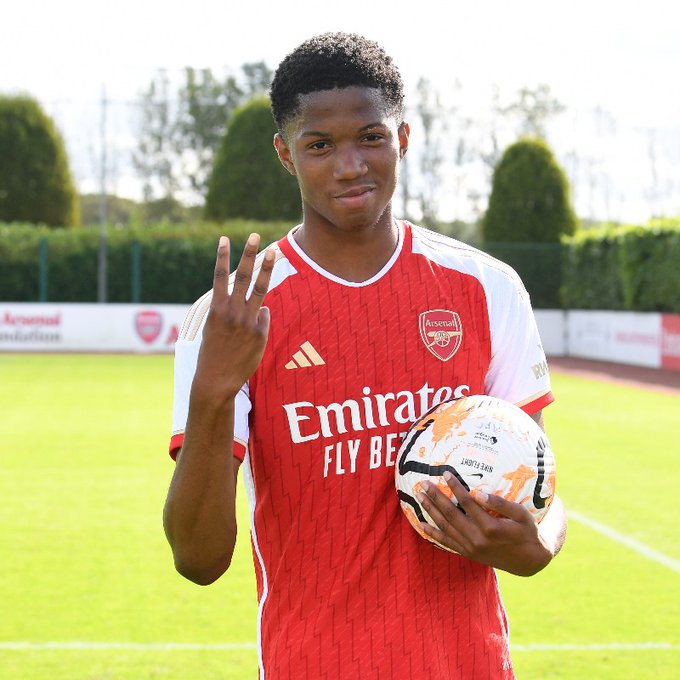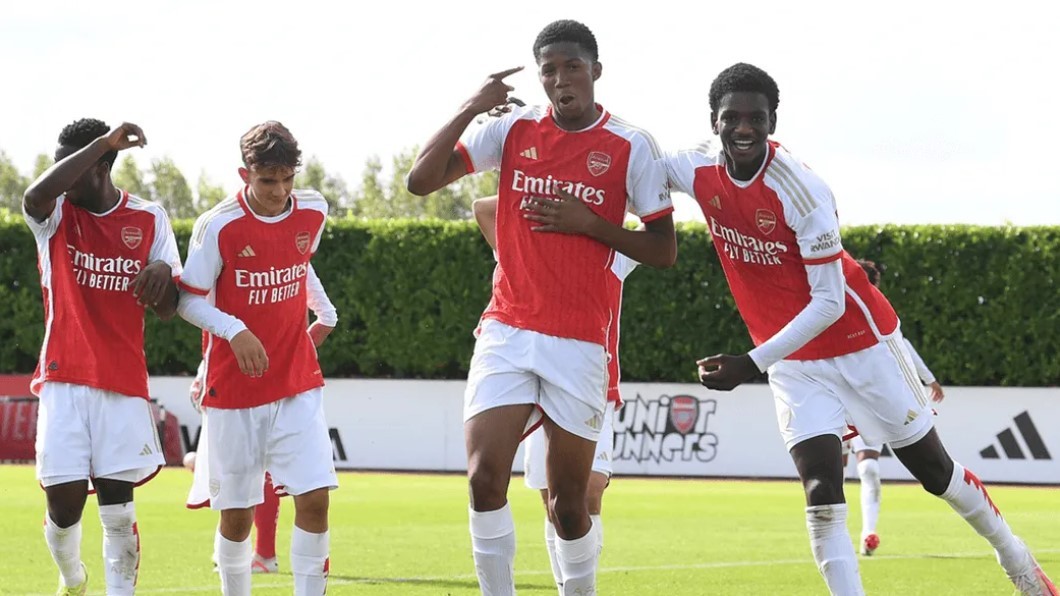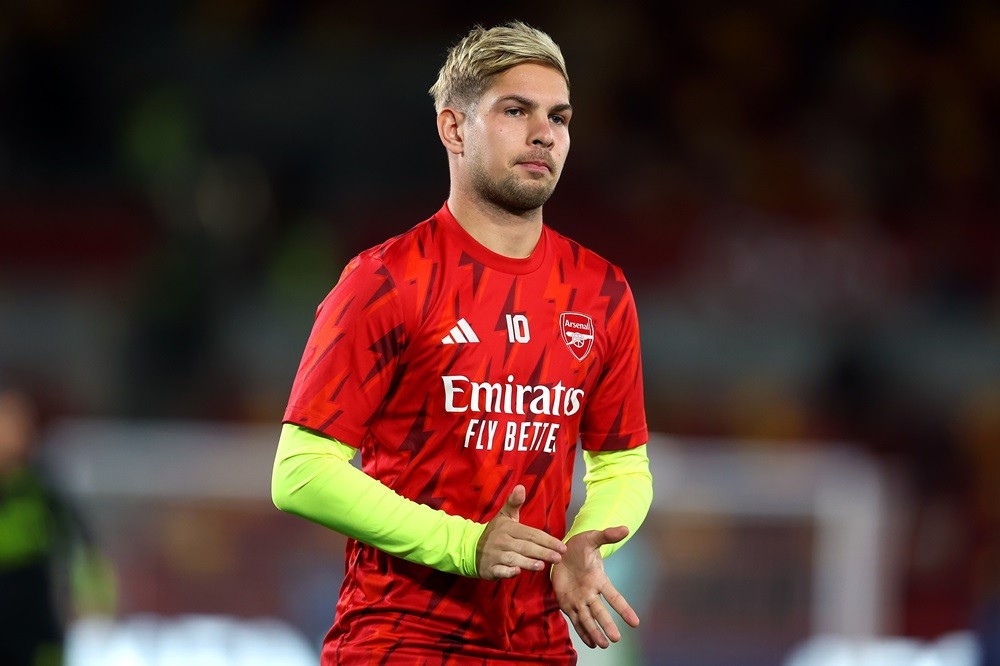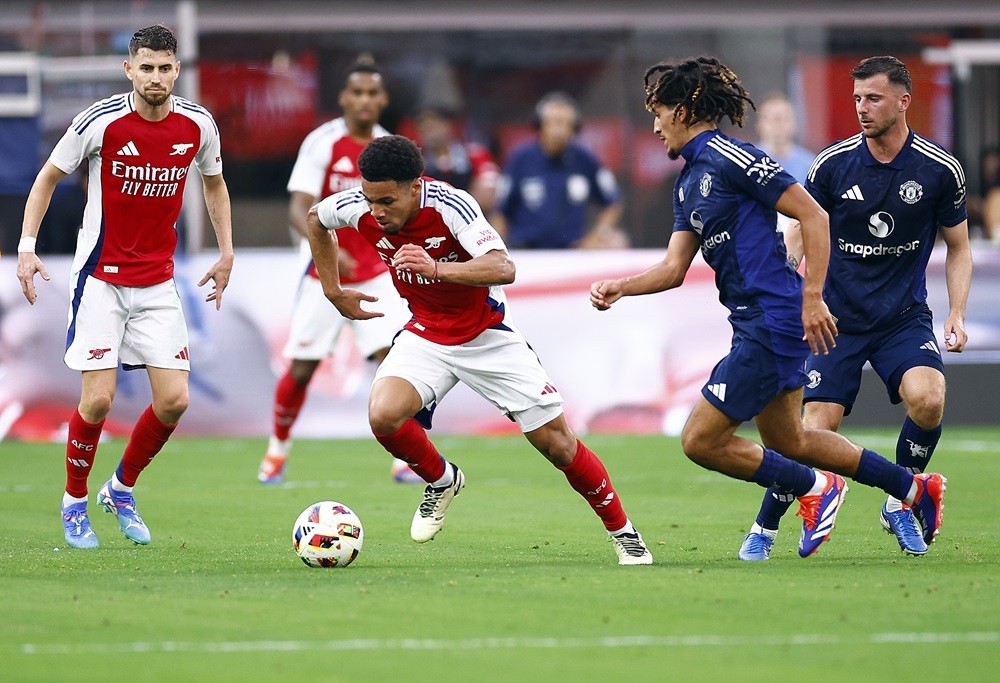Arsenal’s Hale End academy is renowned for producing prodigious talent, but the recent departure of promising striker Chido Obi-Martin to Manchester United highlights a complex issue within the club’s youth development strategy
While Arsenal aims to future-proof the squad by either integrating academy graduates into the first team or profiting from their sale, the Obi-Martin situation reveals a growing tension between financial gain and player development pathways.

A pattern of departures
Obi-Martin’s exit follows the earlier transfers of Amario Cozier-Duberry and Reuell Walters to Brighton and Luton Town, respectively.
Both players were offered new deals by Arsenal, but opted for moves that promised more immediate first-team opportunities.
The club maintains these were amicable departures, benefiting both sides. However, the sentiment surrounding Obi-Martin’s departure is notably different, particularly now he has agreed to sign for Manchester United after repeated efforts from Arsenal to get him to sign a new deal.
Obi-Martin’s record-breaking talent

The 16-year-old striker’s exceptional performances in the academy, including a remarkable 10-goal haul against Liverpool Under-16s, garnered significant attention.
Arsenal certainly recognised his potential, offering a lucrative contract and a structured pathway through the Under-18s and Under-21s, with opportunities to train with the first team.
The dealbreaker: pathway and finances
Despite Arsenal‘s efforts, the negotiations stalled due to disagreements over Obi-Martin’s immediate development path.
The player’s camp wanted an immediate transition to the Under-21s, which Arsenal felt was premature.
Additionally, a ‘financial disparity’ in contract expectations contributed to the breakdown of talks.
The pathway questioned
Sources close to Obi-Martin suggest that the decision to leave was not primarily motivated by finances, but rather by concerns over his pathway into the first team.
Despite Mikel Arteta‘s personal assurances, doubts persisted regarding the club’s commitment to nurturing young talent into regular first-team roles.
You do have to wonder, though, if they are being entirely honest. After all, who is opting to sign for this current Manchester United side above the host of clubs that were interested in Obi-Martin if not, in large part, because of the money?
Balancing financial gain and player development

The departure of Emile Smith Rowe, and likely departure of Reiss Nelson, and Eddie Nketiah, all academy graduates, will generate significant revenue for Arsenal.
However, the Obi-Martin situation raises questions about the club’s ability to balance financial gains with the need to provide clear pathways for young talent to reach their full potential at the Emirates.
Arteta’s approach and the Nwaneri example

Mikel Arteta acknowledges the responsibility of nurturing young players and is wary of rushing them into the first team. He points to Ethan Nwaneri, the Premier League’s youngest-ever player, as an example of a carefully managed pathway.
Nwaneri has been training with the first team and gradually gaining minutes, with expectations that this could be his breakthrough season.
The future of Arsenal’s academy
While Arsenal‘s academy continues to produce valuable assets, both financially and in terms of player development, the Obi-Martin case highlights the need for a clearer, more consistent pathway for young talent.
The club must strike a balance between generating revenue and ensuring that promising players like Obi-Martin feel their ambitions can be fulfilled at Arsenal.
In conclusion, Chido Obi-Martin‘s departure from Arsenal is a complex issue with multiple contributing factors. While financial disagreements played a role, the primary concern appears to be the lack of a clear pathway to the first team.
Arsenal‘s academy continues to produce talent, but the club must address this issue to retain and develop its brightest prospects.
